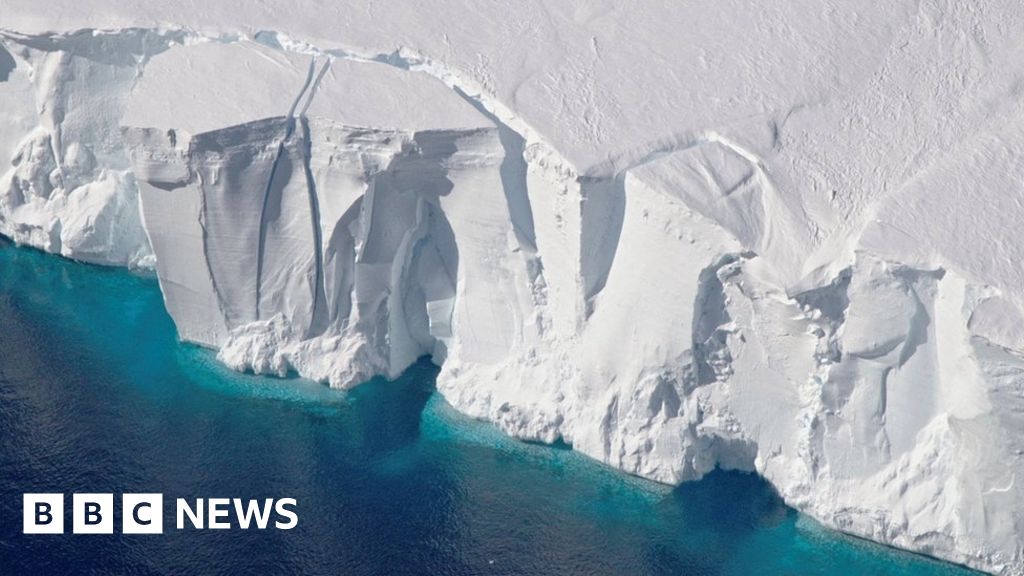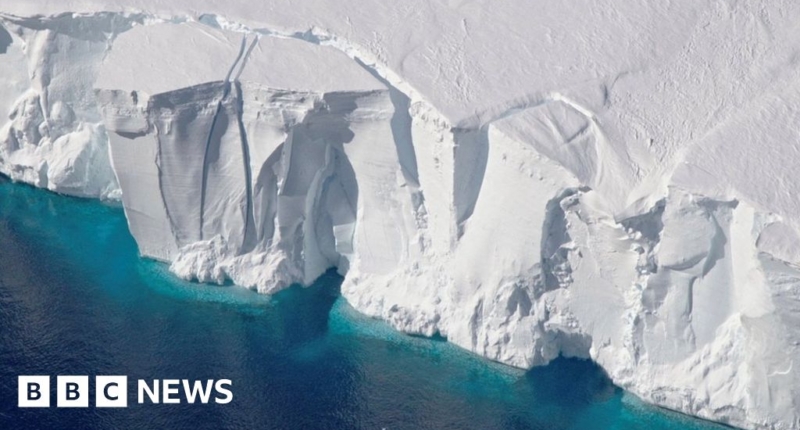According to a report by Australian scientists, the melting of Antarctic ice is causing a significant slowdown in deep ocean currents, which could have catastrophic consequences for the climate. The study warns that the deep water flows that drive ocean currents could drop by 40% by 2050, leading to less vital heat, oxygen, carbon, and nutrients being transported around the world. The report shows how Earth’s network of ocean currents is partly driven by the downward movement of cold, dense, salty water towards the seafloor near Antarctica. Melting ice sheets from Antarctica are causing seawater to become less salty and less dense, resulting in a slowdown of deep ocean currents. The scientists warn that if carbon emissions continue at the current rate, the Antarctic reversal could collapse, with severe consequences for the planet. The report’s lead author, Professor Matthew England, emphasizes the importance of reducing carbon emissions to mitigate the situation’s potentially catastrophic effects.

Report Warns Antarctic Melting Could Lead to Ocean Current Collapse
A new report by a team of Australian scientists warns that the melting of Antarctic ice is causing a significant slowdown in deep ocean currents that drive the world’s ocean currents. The slowdown in ocean currents could have a catastrophic impact on the climate, with the ability to absorb carbon dioxide from the atmosphere being reduced. The study, published in the journal Nature, shows how Earth’s network of ocean currents is partly driven by the downward movement of cold, dense, salty water towards the seafloor near Antarctica.
Melting ice sheets from Antarctica are causing seawater to become less salty and less dense, resulting in a slowdown of deep ocean currents. The scientists warn that if carbon emissions continue at the current rate, the Antarctic reversal could slow by more than 40% in the next 30 years, putting the current on a trajectory that appears to be heading towards collapse.
The current slowdown could have a massive impact on marine ecosystems and Antarctica itself. The overturning currents bring nutrients that sink to the bottom when organisms die and resupply the global ecosystem and fisheries. The report warns that a slowdown in currents could lead to increased melting, causing additional feedback and further slowing of the circulation.
A previous study suggested that a slowdown in the North Atlantic Current might be causing Europe to cool. The report explains how the slowdown in deep water flows that drive ocean currents could drop by 40% by 2050, resulting in currents carrying less vital heat, oxygen, carbon, and nutrients around the world. The study also highlights how the slowdown could reduce the oceans’ ability to absorb carbon dioxide from the atmosphere.
The report warns that deep ocean currents in the northern and southern hemispheres have been relatively stable for thousands of years but are being disrupted by a warming climate. The Atlantic circulation system was found to be weaker than it had been in over 1,000 years, and it had changed significantly in the past 150 years, according to a 2018 Atlas study. Changes in the conveyor-belt-like Atlantic overturning circulation could cool the ocean and northwestern Europe and affect deep-sea ecosystems.
The Australian scientists who conducted the new report emphasize the importance of reducing carbon emissions to mitigate the current situation’s potentially catastrophic effects. The report’s lead study author, Professor Matthew England, warns that if global carbon emissions continue at the current rate, the Antarctic reversal could collapse, with severe consequences for the planet.
Antarctic Meltwater Could Slow Ocean Currents Twice as Fast as Previously Thought
According to a new report, the circulation of deep waters in the Antarctic could slow twice as fast as previously thought. The scientists spent 35 million computing hours over two years producing their models. The study’s lead author, Professor Matthew England, said the impact of Antarctic meltwater on ocean currents had not been factored into the IPCC’s models of climate change but would be “significant.” He called the finding “major news” and warned that it could have severe consequences for the planet.
Don’t miss interesting posts on Famousbio










